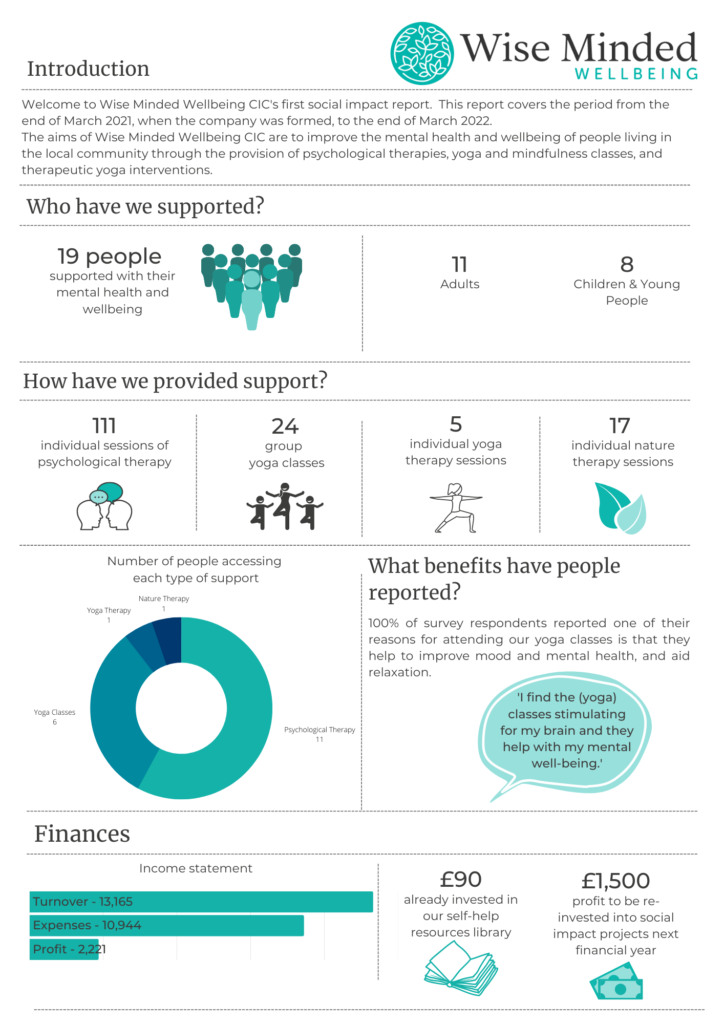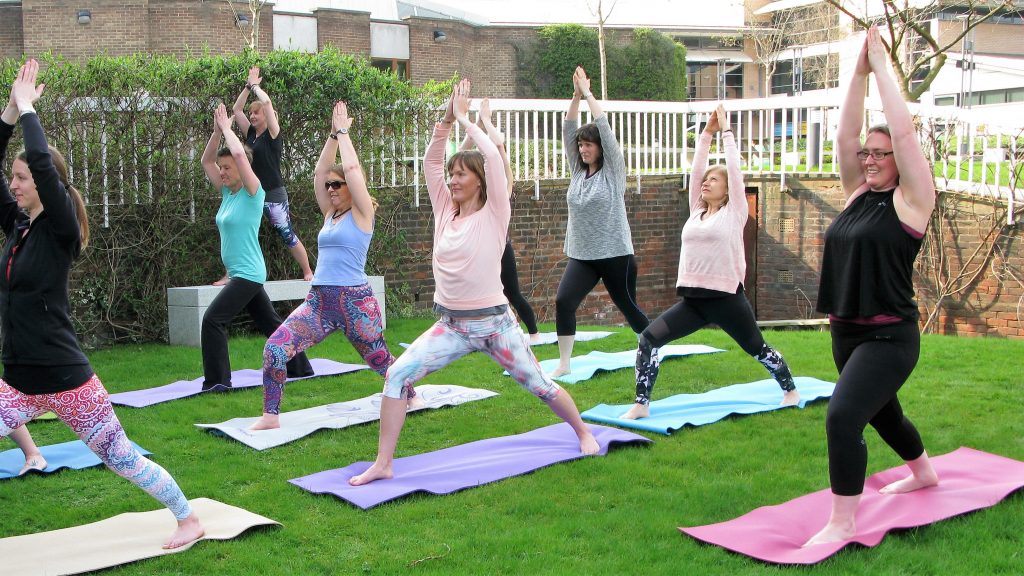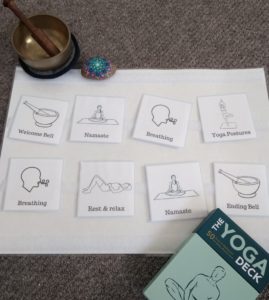March 2021-March 2022

March 2021-March 2022

This time of year can see people feeling a bit ‘out of sorts’ – summer is over, there is a definite chill in the air and the nights are starting to draw in. Plus we have also facing food and fuel shortages, and ongoing uncertainty around Covid-19! All of this is bound to be taking a toll on us both mentally and physically. But maybe yoga could help…

The scientific research into the benefits of yoga, for physical and mental health, is now quite well established. So lets take a look as some of the wellbeing benefits, for both adults and children. When researching the benefits of yoga, they seemed endless. This is great news for all the yogis and yoginis out there, but slightly overwhelming when trying to write about them! So I’ve tried to pick the ‘top five’ benefits for physical and mental health.
Starting with the physical benefits, yoga can…
Being physically healthier can help to improve mental health and wellbeing, but yoga can also have direct benefits on your mental health and wellbeing. Yoga can…

Yoga has lots more benefits that I could have mentioned, but hopefully this is enough to convince you (if you needed convincing!) that yoga is beneficial for physical and mental wellbeing. So if you’re not already practising regularly, then what better time to start? There are lots of online and in person classes available out there. For classes and events run by me check my Classes and Workshops page, or contact me for information about 1:1 yoga or therapeutic yoga sessions aimed at improving mental health and wellbeing.
For most people the idea of talking therapy conjures up the idea of sitting in a room somewhere talking to someone about their problems. While this is often the case, it doesn’t have to be.
The Covid-19 pandemic has forced many therapists to get more creative with what therapy can look like. For some this has meant online working (me included!) but another option has been to take therapy outside into natural spaces.
Taking therapy outside is nothing new – many therapists have been taking therapy outside for years. There is also a growing evidence base showing the positive effects of nature on our mental health and wellbeing.

So here are my top five reasons for taking talking therapy outside:
1 – The benefits of meeting in a ‘neutral space’: Going to see a therapist can feel a bit scary and intimidating, especially when you are meeting them at ‘their’ office or therapy room. Outdoor spaces used for therapy are often public spaces, so can help put people at ease.
2 – Walking and talking can feel less intense: Linked to the point above, many people may find the idea of sitting in a room with one other person, whose full attention is on them, too intense. Meeting in a natural space, and talking while walking, can help to take the pressure off.
3 – Nature can become part of the therapy: Nature can provide lots of insights into life and our mental processes. This can provide rich opportunities for developing our insight and understanding about ourselves and our relationships with others (and nature itself).
 4 – We become more aware of our senses when we are outdoors. When we’re out in nature all of our senses are actively stimulated. This can provide a great environment for practising skills such as mindfulness, which we know from research is a key skill in nurturing mental health and wellbeing. There is nothing quite like doing a practice like ‘leaves on a stream’ next to an actual stream.
4 – We become more aware of our senses when we are outdoors. When we’re out in nature all of our senses are actively stimulated. This can provide a great environment for practising skills such as mindfulness, which we know from research is a key skill in nurturing mental health and wellbeing. There is nothing quite like doing a practice like ‘leaves on a stream’ next to an actual stream.
5 – Being outside reduces stress: Research has shown that being outside in nature reduces our stress response, and helps us to recover from the mental overload of day-to-day life.
Even though many things (including how we deliver therapy) are starting to go back to ‘normal’, Wise Minded Wellbeing will be continuing to offer 1:1 ‘walk and talk’ sessions outside in local natural spaces. If you are interested in finding out more about these sessions, then please get in touch.
Over the last 18 months our children and young people have been through a lot. Their worlds have been turned upside-down, with increased uncertainty, missed education and isolation from friends and family. Could Yoga Therapy provide an alternative source of support, as the inevitable demand on mental health services increases?
COVID-19 has had, and will continue to have, an impact on the mental health and wellbeing of children and young people. It’s been a time of increased uncertainty, missed education and social isolation. According to The Centre for Mental Health, this year’s report from the NHS Benchmarking Network shows a record number of referrals into Child and Adolescent Mental Health Service (CAMHS) – a 15% increase in just one year.
With the inevitable increase in demand for CAMHS, we may need to think outside the box when it comes to supporting children and young people with their mental health and wellbeing. Yoga Therapy may provide a creative alternative approach.
What is Yoga Therapy?
Yoga therapy works in a holistic way, supporting the body, mind and heart. Children’s yoga therapy combines a psychological approach with traditional yoga practices (such as stretching, movement, breathing, sound and relaxation) and tailors them to the needs of individuals or small groups. The intention of yoga therapy is to equip children and young people with skills to support their own wellbeing and resilience.
What is the evidence?

Research has shown that regular yoga practice can result in measurable physiological changes, which in turn can have a measurable positive impact on a person’s mental health and wellbeing. There is an emerging evidence base that yoga therapy has a positive benefits for children and young people experiencing a range of difficulties, such as low mood, anxiety, anger, attention and concentration difficulties, trauma and neurological differences.
Who can benefit?
 Yoga therapy can support children and young people with a range of difficulties, and is particularly useful for children and young people who would benefit from a psychological approach, but who may find it difficult to engage meaningfully in talking therapies for a number of reasons.
Yoga therapy can support children and young people with a range of difficulties, and is particularly useful for children and young people who would benefit from a psychological approach, but who may find it difficult to engage meaningfully in talking therapies for a number of reasons.
Yoga therapy interventions can be commissioned privately by families, or can be delivered within education and childcare settings. If you are interested in finding out more about yoga therapy for children and young people then please get in touch.